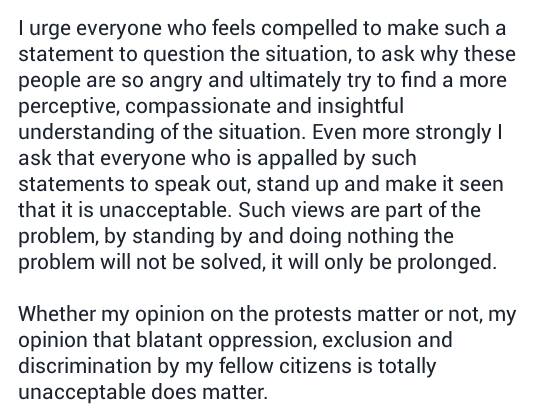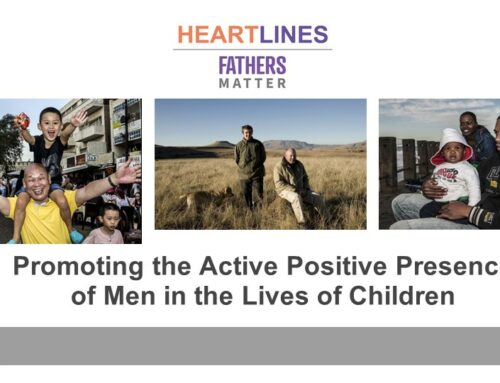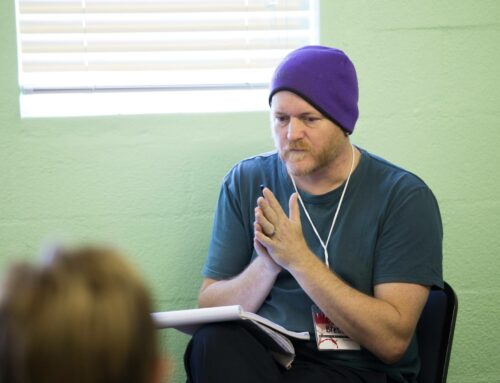The last two days have been a blur of action and comment and conversation and reporting and trying to figure out exactly what is what and who is who in the whole South African #FeesMustFall movement. It is complicated and tricky and confusing and yet SO SO IMPORTANT and so it is up to each one of us to do the best we can in terms of figuring out our understanding and our involvement. Here are just a few hopefully helpful things out of many to get us closer to that:
i am almost always of the opinion that when my wife tbV speaks [and especially when she writes] you should pay careful attention. She ended off yesterday’s action with this status on Facebook that tells it like it is – WHAT? Moving on and getting over it might be messy and uncomfortable?
Might I suggest that this IS what it looks like for a nation to “move on” and “get over it”. This is the long, hard work. The uncomfortable and inconvenient. The messy and scary and confrontational and disruptive work-in-progress of moving on. The moving on you’re asking for? The one that’s about product instead of process? That’s the kind where your mom or teacher says “Just say sorry and shake hands”. This moving on, the one that’s about the here and now and the hoped-for-but-not-yet? This kind is the kind grown-ups know is critical. It’s the kind of getting over it that doesn’t just say sorry, but works to make right what is wrong. Kids need the kind that’s about warm-fuzzies. This is what adulting looks like for a nation. So put on your big-girl-panties and get over the kind of “getting over it” you’ve dreamt about and start getting involved with the kind that’s on offer to you. [Valerie Anderson]
Then there was an older piece i saw a long time ago that my friend Candice reminded me about and this is worth revisiting as it breaks down some of the individual aspects of ‘White Privilege’ that people who shy away from the term might be more open to recognising. Check out the full article and see the explanation, but here are the six things Verashni Pillay suggests white people [generally as in more often than not, not exclusively and always] have that black people do not [again]. Her ‘What can you do?’ at the end is possibly the most helpful piece:
6 Things White People Have That Black People Don’t by Verashni Pillay, Mail & Guardian
1. Generational wealth
2. Social capital
3. Early childhood development
4. The benefit of the doubt
5. A financial head-start
6. Self-sufficient parents
What you can do
There’s so much more but here’s a better idea. Sit down with one of your black friends and ask them to tell you about how apartheid has affected their life. There are so many different kinds of injustice in this world. Race is just one of them. But it’s one that people seem to want to deny the most. When my white friends tell me about some traumatic experience they had that affected their lives I don’t tell them they’re probably imagining it and they should “move on”. I try to listen and sympathise. Try doing the same for the injustices someone else has suffered – including those that are race-related.Caveat
I know this isn’t true for all white people or all black people. I’m talking in broad strokes here and there will always be exceptions.
Max Du Preez gives us this piece called Protesting Students need our Support which gives a nicely balanced approach, starting with these resonating-with-many words:
If you were one of the middle class people watching the student revolt on television and mumbled something like “bloody idiot, go to class and make something of yourself” then I urge you to think again.
What i enjoy about Max is that he is able to stand back a little and see both sides of the argument/struggle as evidenced here:
But I had to remind myself that this was South Africa: nobody takes notice of your grievances if you simply hand over a petition.
If you resort to violence, of course, as a few had done yesterday in Johannesburg, you simply deserve to be charged in a criminal court and kicked out of university.
But the one or two incidents of violence do not delegitimise the whole cause.
Yes, the struggle is valid. No, not all the actions taken during the struggle are acceptable. But let’s not let those distract us from what the cause it. Go and read the rest of his article over here.
Then late in the day i stumbled on the account of a woman who calls herself Snowflake on the Twitterer and she gave a 24 points connected story detailing how she came to realise she was privileged – this is brilliant.
So what’s the deal with ‘white privilege’?
1. I feel this is necessary because some people have issues with comprehension. So I will explain white privilege through my family history.
2. I don’t come from a long line of rich folk who just had money to pay for everything through generations.
3. At the age of 12, my orphaned great grandfather left SA for Zimbabwe and became a railroad worker. He got married and had 7 kids.
4. The family sometimes lived in tents wherever he was working on the rails. None of them got a tertiary education.
5. That was my grandmother’s family. My grandfather’s parents also could not afford to send him to university. He ended up being a miner.
6. My grandparents couldn’t afford to send my dad to university so he volunteered 2 extra years in the army to pay his way.
7. That still wasn’t enough so while studying towards a BA, he worked nights as a security guard to pay his fees.
8. After graduating, he had a stint as a farm hand and then started working in the mines as well.
9. From the mines, he was picked up by one of the overseeing companies and moved into the corporate sphere.
10. Being a white male, he quickly moved up the ladder and ended up in a top position at a large chemical company.
11. That salary allowed myself and my brothers to go to a private school and university with our fees paid.
12. This doesn’t mean that my dad didn’t work his ass off but being a white male gave him more opportunities.
13. As such, it took one generation to break the cycle of poverty in my family. This is not what happens to black families.
14. The chances of a mine worker being plucked from the mines and placed in the corporate world without any qualifications are nil.
15. Their children don’t get the opportunities that I got because of centuries of structural inequality.
16. And that’s what white privilege entails. Black people who were in the same position as my family have to work so much harder to get out.
17. I will be the first person in my family to get a professional degree too but it was much easier for me than my classmates from townships.
18. Class and race in South Africa are heavily intertwined and if you try to say otherwise, you’re plain ignorant.
19. So please shut the f*** up about your job in a CD store.
20. I’ve also worked throughout my varsity career and will be paying for my second degree with the money I saved up from that.
21. But that wouldn’t have been possible if my first degree wasn’t paid for already. So it’s not the same.
22. And even with all my privilege, I turned down UCT because it was too expensive. So imagine what it’s like for the kid who has nothing.
23. As a white person and/or a person in a privileged position, you are also responsible for educating yourself on structural inequality.
24. It took years at Wits for me to also shake my privilege blinders. I’m grateful to the people I met who gave me perspective.
There is so much more to read and listen to and take in and share. This is a significant moment in our country and we need to do what we can to educate ourselves as well as we can about it.
i want to almost end off with these powerful, challenging and helpfully gracious words from my good mate, Bruce Collins:
Stereotypes are perpetuated because we’re afraid of our prejudice being exposed. It’s easier to label than to listen, isn’t it?
Stereotypes are neither true nor helpful. All they do is polarise. I wish more of my friends would commit to listening. Yet, I see a lot of labelling, name-calling, finger-pointing and uninformed bandwagons riding riot over sensibility.
Often, there’s a subtlety to bigotry. It’s thinly veiled. It creeps in. When last were you actually prepared to have your privilege challenged? Or did you walk away, shaking your head; because [insert accusatory & offensive stereotype here].
If you really love our country, you’ll be committed to finding the solutions in your context. You’ll find ways to make your life resonate, rather than destroy. Smile. Listen. Be slow to anger. Do not take offence. Listen again. Be wise before opening your mouth.
And, when you speak, speak life. And challenge the endemic ills. Do that. It’s worth it.
And finally a satirical piece from ZA News [for those who satirical is too big a word for, that means it’s not real – like all the people who responded in the comments below clearly didn’t quite ‘get’] because if we don’t find ways to laugh during the struggle we may spend all our time crying: UCT Student from Constantia Can’t Understand why People’s Parents Aren’t Paying Their Fees
Facebook was flooded with statuses of people moaning about having to uber to campus, or “taking a beach day cos uni is totes scary today”.
We need to not jump to conclusions before we take time to listen and process and try and hear both or all sides. Remember this is complicated and messy and not everything being done and said is okay. But let’s not miss the main thrust of the movement because of some out of hand actions and words. Let’s try and move from “us and them” to “we” and realise we are searching for what works best for us all in our beautiful country.
i loved this poster shared by Anne Katherine who has been one of the most vocal Allies i have seen out there:
As well as this statement in the face of a very rude and racist comment that was posted:
Nkosi Sikilel’ iAfrica.
[My mate Zippster writes his first blog post and it’s called ‘I, Racist’ – check it out]
[For the next piece on #FeesMustFall with some first hand stories, click here]
Actually i couldn’t quite end without sharing my winner of the internet yesterday which was my buddy Wayne and this pic he shared to calm my nerves. Try and not be one of these, people:









[…] from yesterday’s post highlighting some very helpful thinking when it comes to this #FeesMustFall movement, i just wanted […]
[…] best to compile some helpful resources linked to the #FeesMustFall movement in this post i did ‘From a Number of Different Eyes and Mouths’ and this second post which shared more thoughts as well as first-hand experiences of others. But i […]
[…] #FeesMustFall through a number of different eyes and mouths… […]
[…] [1] The first post was a link to some helpful thoughts and articles from a bigger perspective view on #FeesMustFall called Through a Number of Different Eyes and Mouths. […]
[…] saw this a fair amount when it came to the recent #FeesMustFall movement that so much of social media was reporting and commenting on. i quickly came to see that some of […]